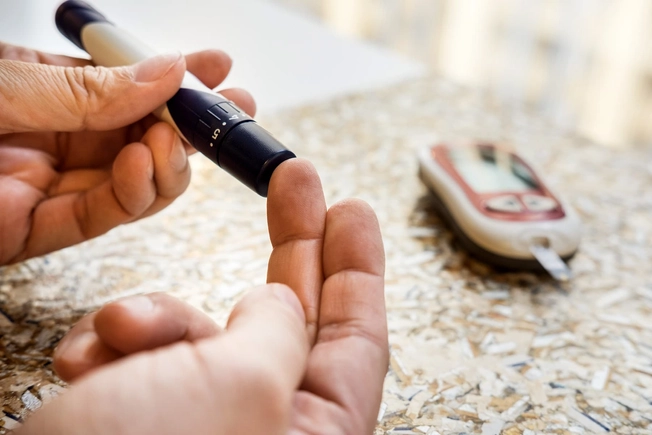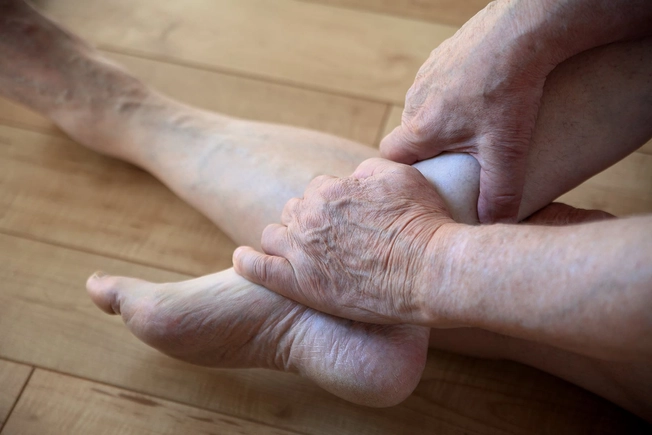- Overview & Types
- Symptoms & Diagnosis
- Treatment
- Living With
- Related Conditions
- Type 2 Diabetes
- Type 1 Diabetes
- Gestational Diabetes
- Appointment Prep
- View Full Guide
What Your Friends With Diabetes Want You to Know


Blame and Shame Aren’t Helpful
Skinny people can get diabetes, too. Sure, lifestyle plays a big role, but so do genes and ethnic background. Type 2 diabetes is about the body not making enough insulin and not properly using what it does make. There are things your friend can do to improve their diabetes, but the blame game doesn’t help. It’s better to help with problem solving.

This Disease Is Expensive
Between doctor visits, testing supplies, and medications, care for diabetes is very pricey. One recent study found that people with diabetes spend nearly three times more for deductibles, copayments, and coinsurance than those without diabetes.

There Are Ups and Downs
Even when your friend is doing everything right -- counting carbs, planning meals, going for daily walks -- sometimes their diabetes is out of control. Stress and hormones can mess with blood sugar.
The disease is also progressive. What once worked may not do the job anymore. Damage to your friend’s pancreas can get worse over time. That can give them less insulin to work with. Many times, people with the disease need more medicine as time goes on.

Encouragement and Support Are Critical
Instead of pointing out shortcomings, encourage and praise your friend when you see them make a healthy choice. Tell them that cauliflower-crust pizza looks delicious. Invite them out for a walk or a bike ride. Work with your friend to tweak a favorite recipe so it fits in their meal plans. Offer to drive them to the doctor or to help create a weekly meal plan.

Keep Those Invites Coming
Just because your friend has diabetes doesn’t mean they can’t do things with you. They may need to plan ahead and make a few adjustments, but they can still attend parties, go to amusement parks and restaurants, go hiking, camping, dancing, or participate in countless other things.

Look for Signs of Low Blood Sugar
Your friend may not always realize when theirs gets too low. That can make thoughts foggy. If your friend seems tired, weak, shaky, dizzy, sweaty, or irritable, suggest that they check their blood sugar. You may even want to ask if you can bring them some juice.

Stop Talking About Cures
Resist the urge to tell your friend about the latest miracle cure you read about. Sticking to their diet plan, losing weight, and exercising will help control their blood sugar. But their diabetes won’t go away completely.

One Piece of Candy Won’t Kill Me
Don’t get judgmental on them or freak out. As long as they plan for their sweets as part of a healthy meal plan or combine them with exercise, your friend can have a little dessert. Sweets are no more forbidden for them than they are for you. They just have to have a small portion and make sure they account for the carbs.

My Foot Pain Can Be Terrible
Sometimes the foot pain with diabetes is so bad that people can barely walk. This can really make it hard for people with the disease to get the exercise they need. Over time, diabetes can result in nerve damage called diabetic neuropathy. It causes burning, tingling, and stabbing pains. Some days the pain makes it hard to function at all. Eventually, neuropathy can also make them lose feeling in their feet.

Don’t Be All Doom and Gloom
Yes, your friend knows some people with diabetes lose their eyesight, or have a foot amputated, or need dialysis. But they don’t need to be reminded of it. These are worst-case scenarios that are much more likely to happen to people who don’t manage their diabetes well.
If your friend works hard to control their blood glucose levels, checks their feet every day, and goes to the eye doctor every year, they can help prevent these and other complications.

Diabetes Has Lots of Hidden Effects
Diabetes can affect every part of your friend’s body, especially if they don’t keep tight control of their blood sugar.
Daily symptoms can include fatigue, thirst, hunger, needing to pee a lot, and mood swings. Possible long-term effects include heart disease, stroke, kidney disease, nerve pain, numbness, sexual dysfunction, non-healing wounds, dental problems, vomiting, diarrhea, and depression.

Changing Habits Is a Struggle
People with diabetes have to change decades-long habits. Exchanging unhealthy routines for healthy ones requires constant attention. Your friend probably has to think about it and make conscious decisions all day. Sometimes, they’ll slip up, but they can always start working at it again.

Managing Diabetes Is a Big Job
All this can be complicated, time-consuming, and exhausting. On top of the regular responsibilities of life, your friend:
- Checks and treats their blood sugars
- Counts their carbs
- Plans their meals
- Exercises
- Takes medicines
- Checks and gives added care to their feet
- Keeps up with doctor and dietitian appointments
It’s a constant balancing act.

Sometimes, a Vent Helps
Your friend can get frustrated, tired, and overwhelmed. There comes a point when they need to let it out. They just need you to listen. Don’t take on their problems or try to solve them. After they’re through, help them reframe their thoughts. Then, talk through some solutions.

I’m Still Me
Diabetes doesn’t define your friend. The person they are now is no different from the person they were before they were told they had diabetes. Some of their behaviors and habits may have changed -- for the better. They aren’t their disease. They aren’t “diabetic.” They’re a person with diabetes.